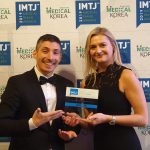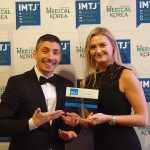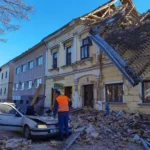January 29, 2020 – The first European Patient Experience and Innovation Congress will take place in Dubrovnik from March 19-21. TCN catches up with co-organiser, Daniel Coulton Shaw from Global Clinic Rating to find out more.
1. The term ‘patient experience’ is something relatively new in terms of medical tourism conference themes. Tell us what you mean by it, and why people will be hearing a lot more about it in the future.
Wikipedia states that Patient experience (PX) is defined as the sum of all interactions, shaped by #healthcareorganization culture, that influence #patient perceptions across the continuum of care.
For me, in my own clinic and the clinics I consult for, I look at patient experience (PX) as simply “everything we say & do”. No matter if we are a single doctor, a private medical practice, medical clinic or speciality hospital, a patient experience always occurs, and it’s something we can usually influence directly.
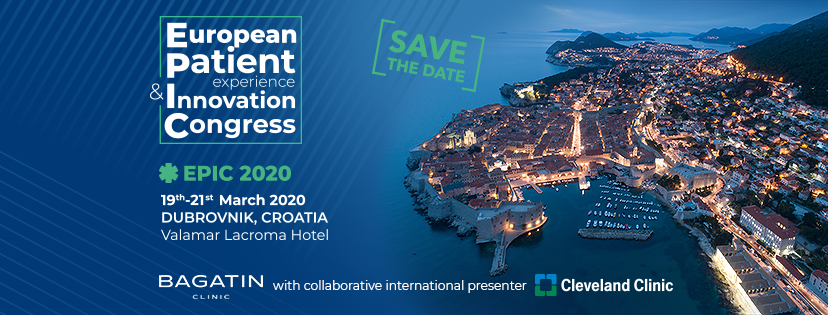
2. How did you get involved in organising EPIC and what will you be talking about in your presentation?
A Croatian healthcare entrepreneur called Ognjen Bagatin invited me to be part of the organising committee along with Irving Stackpole, both of whom I respect greatly for their impact on the medical travel market both in Croatia and beyond. Both of them not only work in healthcare make a profit, but are truly focused on improving healthcare for all, not just their clients. I share that passion and am honoured to work with them to have the chance to bring lasting improvements to the provision of healthcare with central Europe and beyond.
With all the experienced healthcare companies and presenters sharing technological advances brought to us by the digital age, I’m going to cover a part of patient experience beyond that, and that is building and excellent patient experience through empathy.
I’ll be taking participants on a journey through a patient experience map – how to notice, measure and improve on what a patient sees, hears, thinks & feels, says and does. Going beyond the bottom line, and building medical centres of excellence on patient empathy. I’m excited!
3. You have a great personal story of initially helping a dentist do a website in Bratislava, which mushroomed into your GCR business today, and now you have a very good understanding of clinics in Central and Eastern Europe. Which countries are performing best in terms of paying attention to detail in the patient experience, and tell us about any individual examples of excellence?
It’s hard to single out individual countries that are “performing well” inpatient experience, as it is to find a country that has the best customer experience in coffee shops. Starbucks do a great job of systematising the coffee drinking experience, but it’s hard to beat that little Italian “cafeteria” in a forgotten corner of the country where the barista strokes your dog, asks about your leg and moves your chair so that you can get a bit of sun on your face between the trees.
It’s similar in healthcare facilities. I believe that countries such as Finland, Australia, the Nederlands, the US and Japan have made great strides in building systems around the patient experience, but there are hidden gems everywhere I travel.
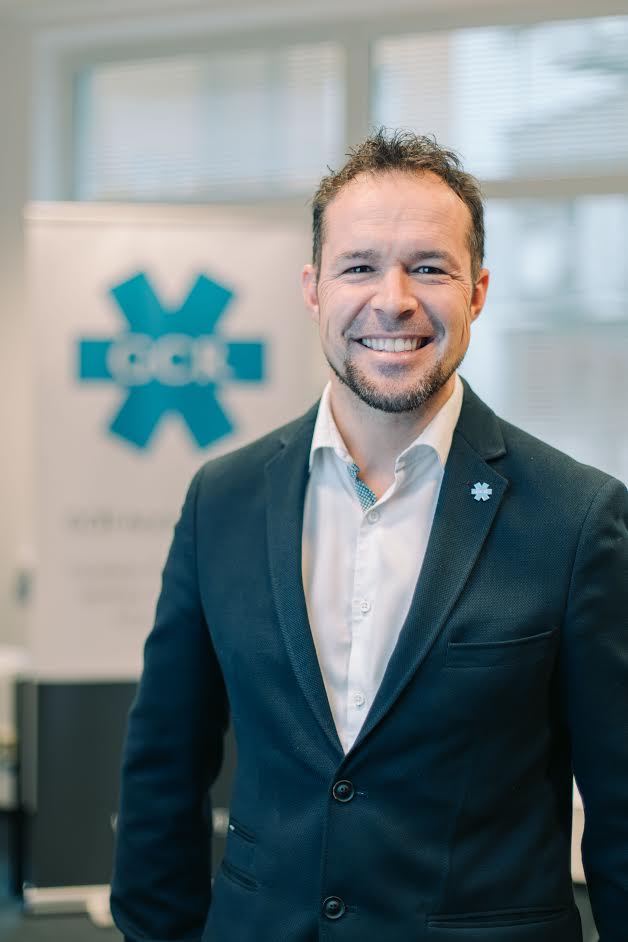
Back to that coffee example. A few months back I wrote an article on Linkedin about a fertility clinic in the Czech Republic, that hired a south American barista simply to create great coffee for their patients. But that’s not all. Via social media, he contacts the patients ahead of their visits to ask them simply what do they prefer tea/coffee – black, white, sugar, no sugar. And to the patients surprise as soon as they sit down for the initial consultation with the doctor, the barista brings in their drink just the way they like it – without even asking the patient about it during their visit.
Now I can tell you that many patients who visit fertility clinics don’t like to share this private treatment to often on social media – but they do share photos of their fantastic coffee experience, and that has done wonders for this fertility centre in reaching new patients.
4. Why Dubrovnik?
Dubrovnik. We’ll who wouldn’t want to get out of the office or hospital and go down to Dubrovnik to learn from the world’s best inpatient experience. It’s a hard offer to turn down.
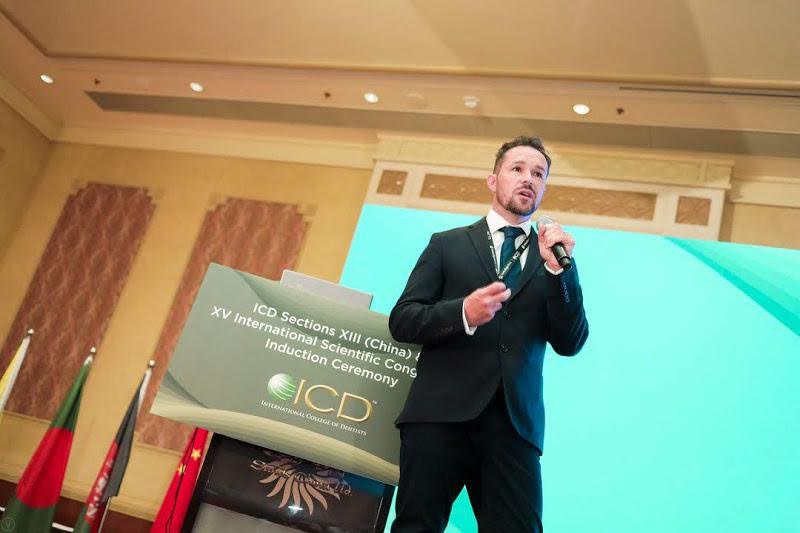
5. Technology is changing the world, and healthcare is no exception. Innovation in healthcare is a core part of EPIC. Tell us a little about this, and what aspects of innovation and technology excite you the most?
For me personally, the most exciting part of current innovation in healthcare is certainly the developments in patient choice. Instead of blindly asking grandma who’s the best doctor, going to the nearest available health centre, or at least the ones that have the best marketing, patients can increasingly turn to patient-reported treatment outcomes (results), along with clinically reported treatment outcomes to judge the quality, affordability and value of individual medical centres.
6. There are some great speakers already confirmed. Give us a flavour.
I’m excited about Dave De Bronkart, who learned he had a rare and terminal cancer, he turned to a group of fellow patients online and found the medical treatment that saved his life. Now he calls on all patients to talk with one another, know their own health data, and for healthcare to listen to patients as partners in the new world of participatory medicine.
There’s also Thijs De Blok from Buurtzorg, I was blown away when I learned about their self-governing teams of ten to twelve nurses providing both medical and supportive home care services. There are over 10,000 nurses in their teams now, dramatically lowering the healthcare burden in the country, with patient satisfaction scores are 30 percent above the national average 9.1 out of 10. This is no small feat, and they have since replicated similar results in Asia and beyond.
7. You are a regular and popular visitor to the Croatian medical tourism scene, and last year in an interview for TCN stated that Croatia can be a hub for medical tourism for Central Europe. Is that still your belief, and what progress has been made in the last year?
Croatia remains the leading contender within central Europe for elective healthcare. As the cost of treatment between the countries continues to level out, medical travellers are looking beyond affordability to value, quality and experience. With Croatian clinics like Bagatin, St. Catherines, Rident & Svjetlost stepping up their game this year, I believe that the other former Yugoslavian & USSR countries should not get too complacent and comfortable.
Croatia is not relying on the government to support them in reaching international patients, as many of these countries still are. It is through the hard work of the private healthcare sector, and active clusters like Kvarner Health that helping the country to rise, regardless of whether the government notices or not.
With the EU presidency in Croatia, it looks like the right place and the right time.
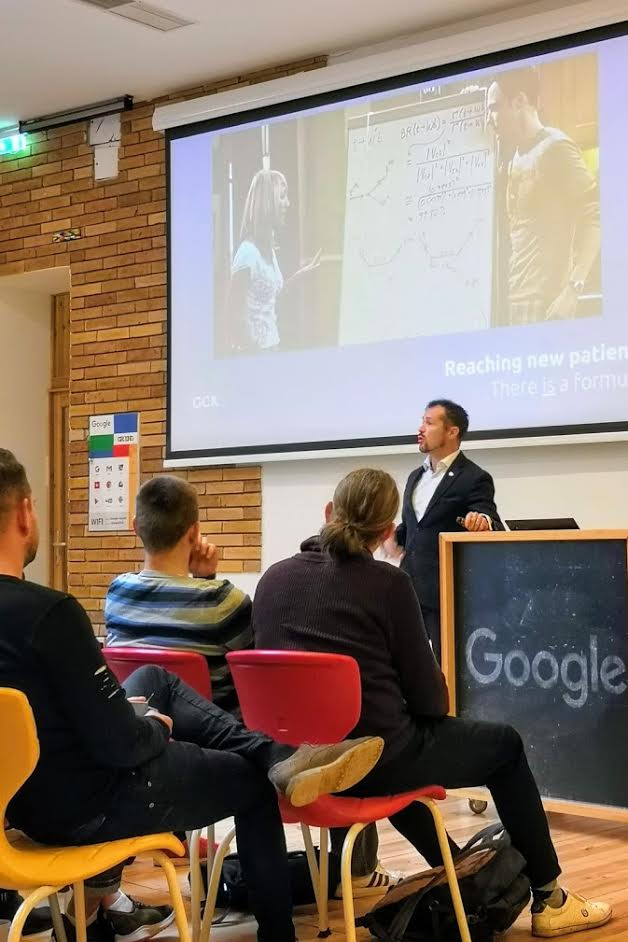
About Daniel Coulton Shaw:
Anyone who knows Daniel Coulton Shaw will tell you that he is an enthusiastic storyteller full of practical ideas that will set your head spinning. His entertaining presentations are largely inspired by the successes and failures from 152 forward-thinking international private medical organizations, health clusters, hospitals, clinics and practices across 26 countries worldwide of multiple specialities. Daniel works closely with this portfolio of leading private clinics, improving the way that these clinics & hospitals reach, book, and engage patients to increase their reputation & results. The patient innovation trends Daniel shares are always supported with insightful data & facts gained through the past 4 years as the ambassador for the GCR the Global Clinic Rating, an award-winning initiative co-founded by an employee of Google to enable both patients & healthcare professionals to compare the apparent quality of almost half a million private clinics & hospitals worldwide. When not on the road, Daniel loves to put theory into practice in the day-to-day running of a successful international dental clinic for English-speaking patients in central Europe that he co-founded back in 2007 as well as spending time “off the grid” with his family – exploring the world beyond phones & screens in the mountains, on the ocean, at great concerts, running races or serving those with limited access to education & care.
You can connect with Daniel Coulton Shaw on LinkedIn.
To learn more about EPIC 2020, visit the official website.
To follow the latest from the Croatian medical tourism industry, check out the dedicated TCN section.



